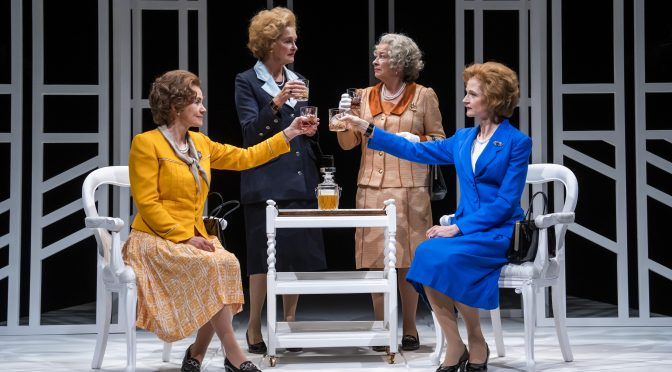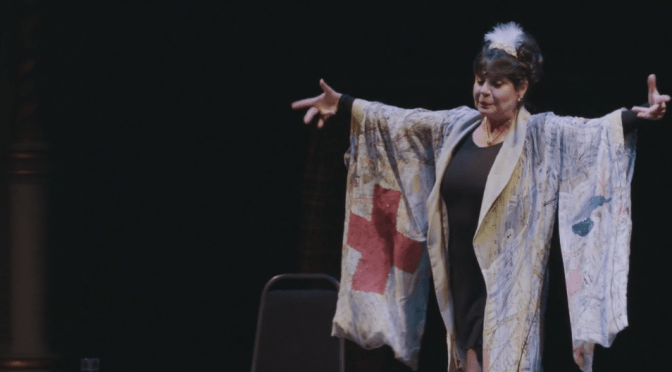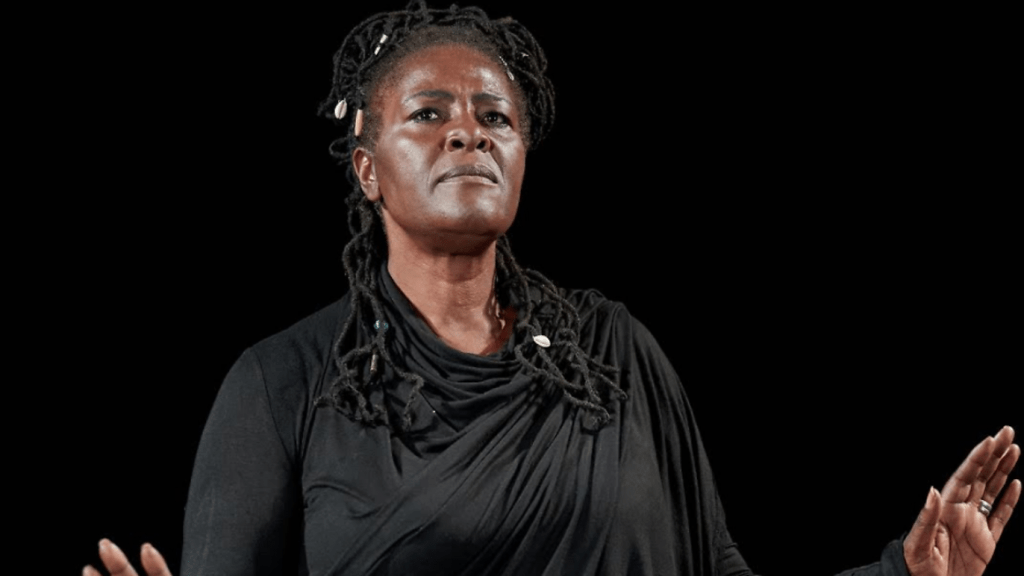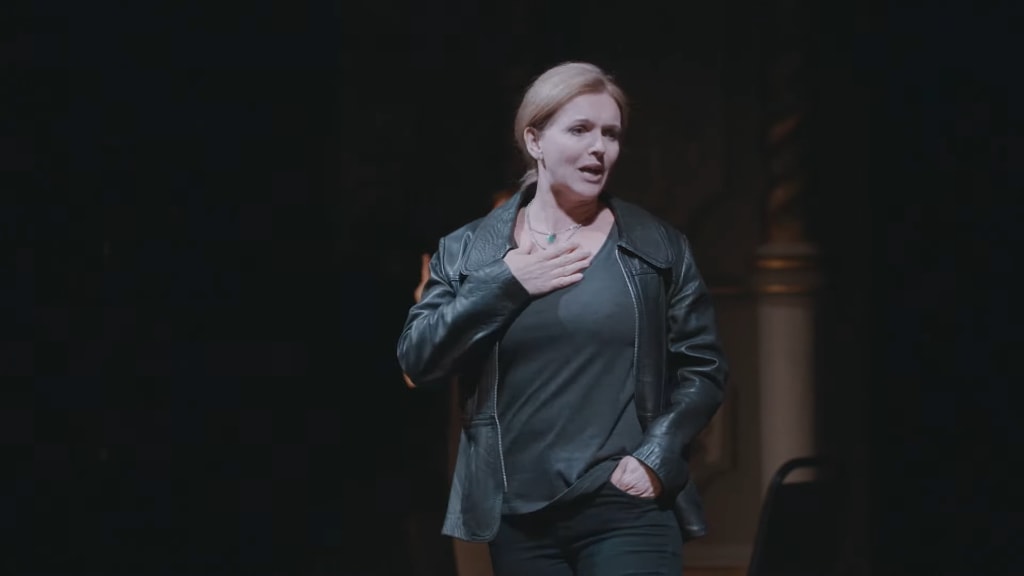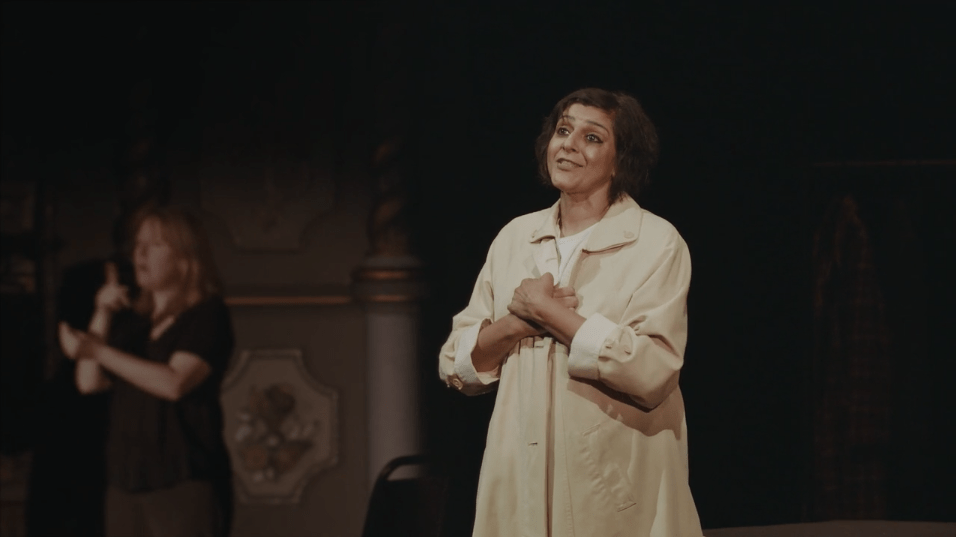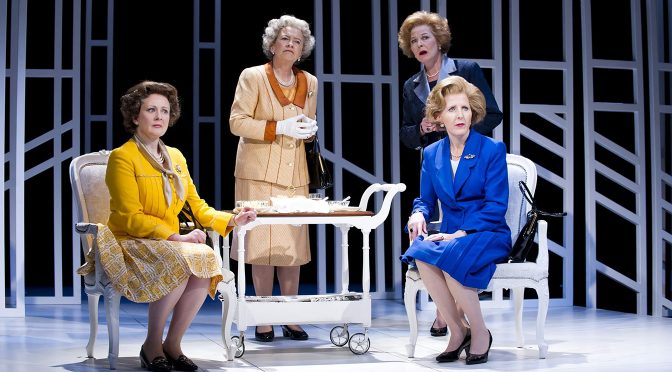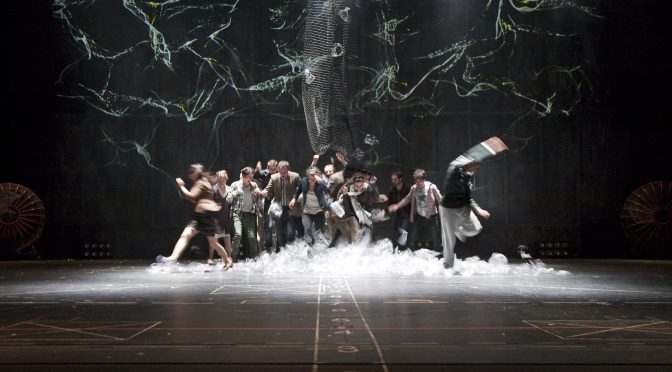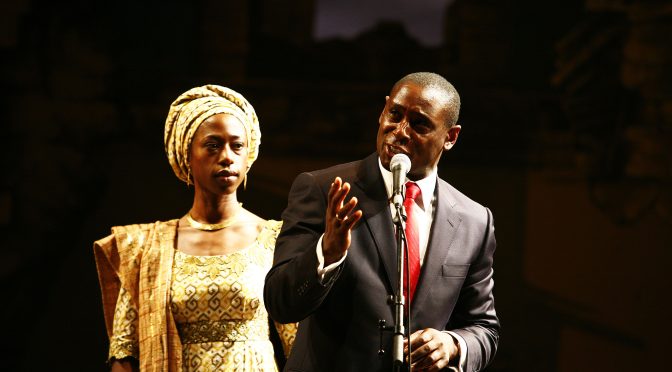It feels odd to watch not one but two versions of Queen Elizabeth on stage so soon after her death. A respectful minute’s silence before last night’s show, lead by director Indhu Rubasingham, indicates careful thought has gone into letting Moira Buffini’s five star play go ahead. But for all the fun in this hilarious piece, which cheekily imagines the Queen’s private meetings with her Prime Minister Mrs. Thatcher, her Majesty comes off very well.
That public statements were not allowed to our constitutional monarch means Buffini can make the Queen a contrast to the Prime Minister. Turns out the richest woman in the world had a lot of concerns about social inequality. And her passion for the Commonwealth gives a global perspective in contrast to Thatcher’s little Britain. But there’s also tenderness in Buffini’s writing about the Queen – she’s presented as a fun, witty woman and a caring mother.
All the Queen’s admirable qualities are conveyed by the actors taking on what must be a particularly challenging role right now. Both Abigail Cruttenden and Marion Bailey, as younger and older versions respectively, give strong performances and make a lot of the lines even funnier than they already are; you could happily spend the night watching Bailey’s every expert move.
Buffini is harder on Thatcher. The role is written with more anger and is possibly closer to caricature. The performances from Naomi Frederick and Kate Fahy respond appropriately. Frederick, as the younger version, manages to suggest nervousness about dealing with a figure she reveres that generates a little sympathy. Fahy’s line in dignity, as she looks back on her time at the top, is convincing no matter her views. The scorn with which both women can say the word ‘socialist’ or ‘wet’ is tremendous.
The way all four characters interact as they try to take charge of the story about Britain during the Thatcher years is hilarious. The blend of sarcasm and sincerity is perfect – the quartet of perspectives battle to tell and interpret what happened. The subject of Thatcher’s dementia provides a moving moment and yet another layer of consideration about interpreting the past. Buffini’s script is dazzling and you don’t want to miss a word.
There’s more to Handbagged than some fantastic comedy and strong impersonations – although both of these make the show a must-see. Two more characters join the stage – ‘Actors’ played by Romayne Andrews and Richard Cant who also impress as a variety of famous faces with great lines. The main role of these super supernumeraries is to highlight what putting on a play – and a play about history – entails.
Pointing out what Thatcher and the Queen don’t want to discuss, slowing down the show to their frustration or embarrassment, the ‘Actors’ interjections are often funny and make sure that their characters are satisfyingly full. Attempts at directing these powerful women are brilliant moments, aided by the show’s real director too. Rubasingham directed the first production of the play, almost ten years ago, and her knowledge shines through, brimming with joyous confidence about the strength of what’s on stage: the respectful, you might say faithful, approach to this modern classic seems very much in keeping with our times.
Until 29 October 2022
Photo by Tristram Kenton

